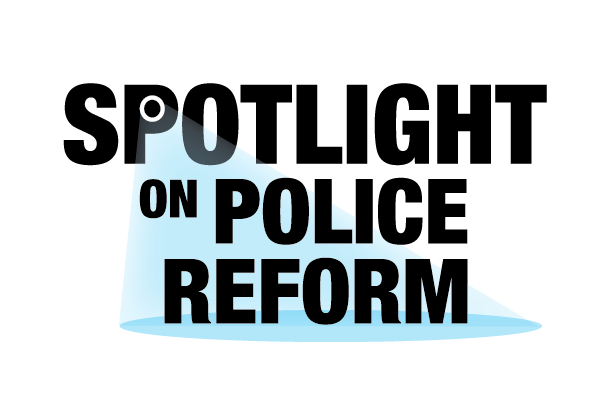Empowering Communities Toward a Vision of Policing Based on Mutual Respect, Not Fear
David R. Jones
Far too often, year after year, in cities, towns and rural areas, uniformed and plainclothes police officers have engaged in indefensible violence against the very people they are supposed to serve and protect, ranging from verbal and physical abuse all the way to outright murder. Over the last 25 years we have witnessed senseless killings of Anthony Baez, Amadou Diallo, Ousmane Zango, Sean Bell, Ramarley Graham, Patrick Dorismond, Akai Gurley, Eric Garner here in New York City, and, in Rochester, Daniel Prude. These are just the names we know. There are others.
This is sadly not a New York phenomenon, but a nationwide problem: for generations, Black and brown individuals across this country have rightfully been afraid of police officers. But finally, we have come to the moment where it has been made more than clear this cannot go on. George Floyd’s murder, and the protests it triggered, catalyzed a national movement to create real change, raising awareness about improper actions of certain police officers and police departments, and the need to improve policing policies across the country.
Here in New York, legislators are acting. In June, lawmakers passed a package of police accountability measures banning chokeholds, mandating body-worn cameras, and creating a special prosecutor to investigate the deaths of people during and following encounters with police. And they finally voted to repeal Civil Rights Law 50-A, which had allowed law enforcement to shield police misconduct records from the public.
Governor Andrew Cuomo is also taking heed. On June 12th he issued an Executive Order requiring every municipal police department in New York State to implement reforms consistent with local community priorities, with the goal of ensuring that abusive, inappropriate, and dangerous police practices are eliminated.
The Executive Order calls for municipalities to consider evidence-based policing strategies including but not limited to the following:
- use of force policies
- procedural justice
- systemic racial bias or racial justice
- implicit bias
- de-escalation training and practices
- law enforcement assisted diversion programs
- restorative justice practices
- community-based outreach and conflict resolution
- problem-oriented policing
- hot spot policing
- focused deterrence
- crime prevention through environmental design, and
- violence prevention and reduction interventions
The Executive Order also calls for communities to consider model policies and guidelines promulgated by the New York State Municipal Police Training Council, as well as standards created by the New York State Law Enforcement Accreditation Program.
Finally, the Executive Order requires that certain stakeholders be included in these deliberations, including:
- members and leaders of the local police force
- members of the community, particularly individuals residing in areas with high numbers of police and community interactions
- interested non-profit and faith-based community groups
- local district attorneys
- local public defenders, and
- local elected officials
This process must be completed by April 1, 2021. Municipalities that fail to comply face the loss of state local assistance funding.
Community members and stakeholders participating in this process should demand that their local government hold hearings, solicit written recommendations, meet with community leaders and hold public forums to both develop the plan, review it and explain how it will be implemented.
To reach successful outcomes, communities need information about proven police policies and procedures, as well as access to criminal justice experts who can advise them on what works—and just as importantly, what doesn’t. With this in mind, the Community Service Society (CSS) has compiled an online database of reports and studies to assist in the process. To help provide context, CSS has invited experts on policing and the criminal punishment system to discuss the current state of policing and which interventions may best address the problem of police violence. The interviews will be conducted virtually and then posted on this webpage.
This database is not designed to compel communities to utilize certain policies and procedures. Rather, it is meant to be a resource providing a wide array of options to consider. And it is a living document: as additional resources become available, we will update the database. If you have information that you think would be a valuable addition, please contact Jeff Maclin at jmaclin@cssny.org.
We hope the resources we are providing will help localities when crafting sensible, workable plans to prevent the abuses we all seek to avoid. Please share this database far and wide.
Learn more at:
